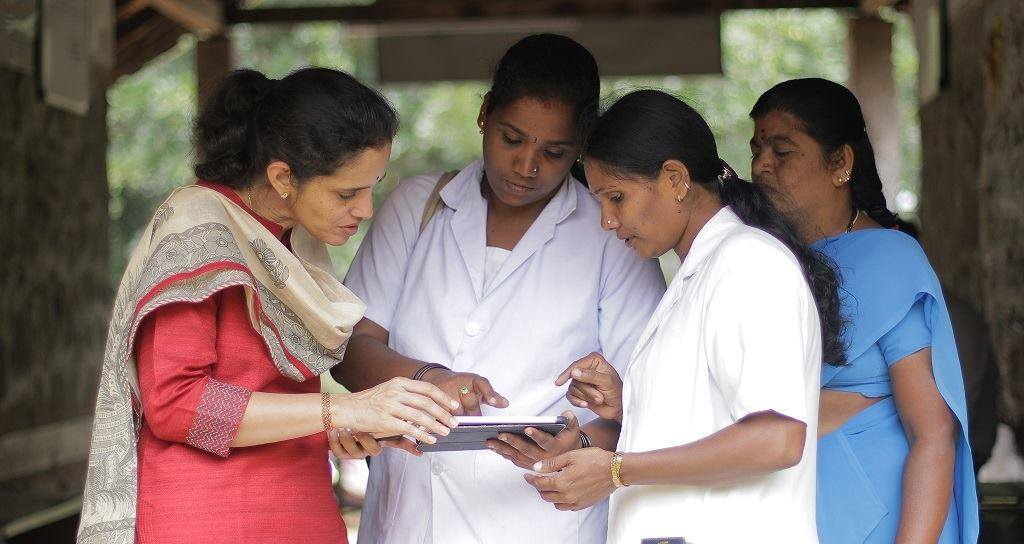(Vtrend.vn) Dell partners with the Government of India to develop a human-centered technology solution to overcome the challenges of providing consistent, preventive care in rural areas.
Approximately two-thirds of India’s 1.3 billion people live in rural areas, according to the World Health Organization. Imagine the challenge of delivering preventive healthcare to over 800 million remote villagers and tracking patient records without the use of technology.
India’s network of 200,000 auxiliary nurse midwives (ANM) serve as the front lines of India’s healthcare system, providing villagers with everything from managing diabetes to childbirth assistance. ANMs in these areas rely primarily on a paper-based system for screening, referring and tracking patients. This system of recording patients’ information is prone to errors, making it difficult to provide continuity of care.
With noncommunicable diseases (NCDs) like cancer, diabetes and heart disease on the rise in India, the Government of India embarked on a mission for population-based prevention, screening and management by health workers to increase early detection of common NCDs. The NCD program is a key component of comprehensive primary healthcare under Ayushman Bharat, a flagship national health initiative announced by the Government of India in early 2018. Dell worked with the Ministry of Health and Family Welfare as its technology partner, taking on the formidable challenge of building a technology solution that would help ANMs and doctors to screen and manage NCDs, while also helping the government to standardize and automate care and record keeping. The solution also needed to have the right dashboards to enable the policymakers to use data analytics to spot health trends and needs across the country.
In 2014, Dell built and deployed a modern digital healthcare solution, Digital LifeCare, as a pilot in partnership with the nonprofit Karuna Trust in the State of Karnataka. Later, Dell worked with state government health departments to customize and deploy Digital LifeCare across the State of Andhra Pradesh in 2016 and in seven districts in the State of Telangana in 2017. In partnership with Tata Trusts, thousands of ANMs and hundreds of doctors across 20 of these states’ districts (with a total target population of 9.5 million) have been trained to screen people for NCDs using Digital LifeCare.
Since late 2017, Dell has been working with the Ministry of Health and Family Welfare to customize the Digital LifeCare solution for deployment in health facilities in more than 150 districts across all of India’s 29 states and seven union territories. To achieve this ambitious goal, the Dell team is working with the Ministry and partner institutions including the World Health Organization, All India Institute of Medical Sciences, Indian Council for Medical Research and National Health Systems Resource Center. The comprehensive feedback from the Ministry and experts is helping shape the design and development of a sophisticated application with referral options, reminders and workplans; protocol-based care at the primary level for assessing risk, screening, treatment and follow-up; and a unique health ID for every individual. This data, captured in an electronic health record, will enable a continuum of care over time across health facilities at all levels.
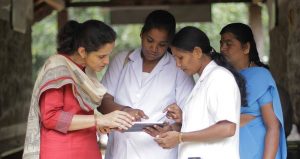
This solution was launched by the Honorable Prime Minister of India in April 2018, and the Government health departments across the country will use it to initially serve a target population of nearly 37 million people over the age of 30. Our deployment partner is Tata Trusts, one of the largest foundations in India. Tata Trusts will support the Government in the deployment and training for thousands of ANMs on the technology solution.
Revolutionizing India’s rural healthcare through technology
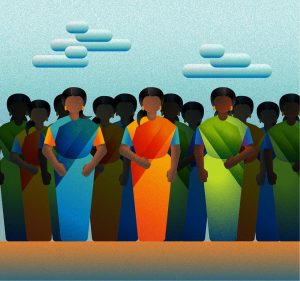
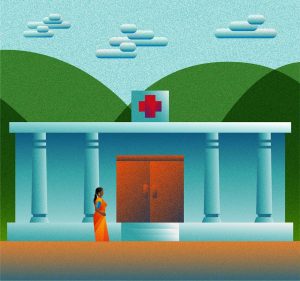
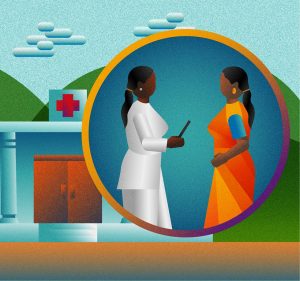
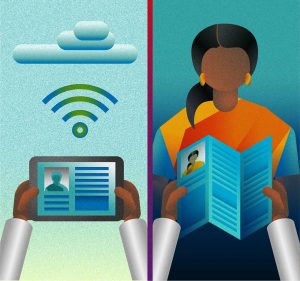
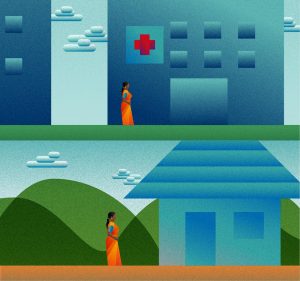
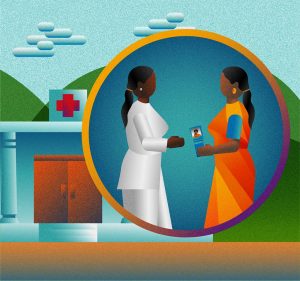
The Digital LifeCare Platform is architected to support modern digital healthcare applications. It includes mobile and web apps with real-time dashboards built on a highly scalable, secure, robust, modular, open-API platform based on a micro-services architecture ensuring seamless integration, rapid continuous deployment and portability of data.
The core team has been supported by more than 70 Dell volunteers over three years to develop Digital LifeCare’s software platform. Dell Giving has funded this initiative since 2017, enabling deployment in the State of Telangana and the current effort to scale across all states.
Digital LifeCare is tailored to the needs of ANMs and doctors in primary-, secondary- and tertiary-level Government facilities. ANMs do not have medical degrees but rather a 10th grade education followed by two years of ANM training. To assist ANMs with their screenings and care recommendations, Digital LifeCare’s mobile app features a series of interactive modules to lead workers through every step of a visit. We included prompts to obtain family and medical history, videos demonstrating proper screening techniques, and health education content to help patients learn about things like nutrition or conducting breast self-exams. Primary health doctors are sometimes overburdened, and Digital LifeCare helps them by guiding them through the patient examination and offering recommended actions and alternatives at each step. The portal is based on the Government of India’s disease protocols for examination, referral, diagnosis, treatment and follow-up. This is particularly important given that NCDs are silent, chronic diseases that need follow-up for life.
The protocol-based system ensures that patients receive the same level of care. The health record created by the ANM for each individual is stored on the cloud and augmented during every doctor visit. There is a comprehensive planning tool that allows ANMs and doctors to track follow-up visits of patients, and most importantly, focus on those who have fallen through the cracks.
“This project fulfills Dell’s vision to develop technologies that drive human progress, and it really tapped into our team’s passion for service,” said Sunita Nadhamuni, director of Dell’s Center for Transformational Innovation in Bengaluru, which spearheaded Digital LifeCare’s development. “Our team members worked hard to understand the challenges healthcare workers face in the field so they could design technology that helps them succeed. This initiative will make a robust system of health management and change the landscape of medical services delivery in rural India.”
We continue to learn from workers’ use of Digital LifeCare and make changes accordingly. For example, data showed us that the screenings were often unintentionally left incomplete, so we consulted with workers and added smart reminders and tutorial videos to nudge users toward complete screenings.
Said Nadhamuni, “Working on this nation-building project is a tremendous inspiration for our volunteers and team members, who are totally committed to making Digital LifeCare a success for the communities we serve.”
Minh Xuân
Vtrend/Dell


